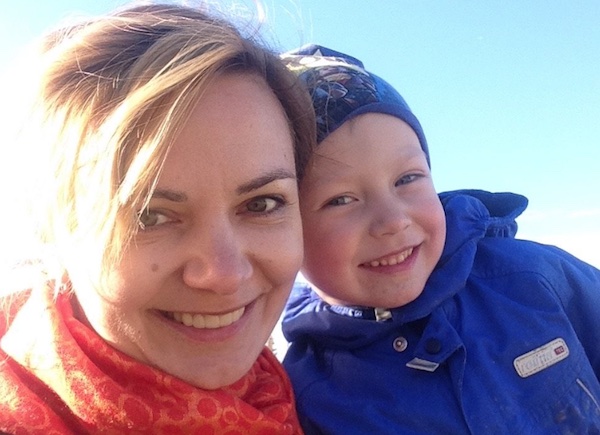Alberta
Alberta Engineering Technology Professionals paving the way for refugees to find work in their field

News Release from the Association of Science and Engineering Technology Professionals of Alberta
ASET waives fees for refugees, offers fast route into tech careers locally
Through two initiatives, the Association of Science and Engineering Technology Professionals of Alberta (ASET) is making it easier for engineering technology professionals who are refugees from war-torn countries to earn their professional designations and find work in their field without having to return to school.
Effective immediately, ASET is waiving all application fees for refugees seeking to become members and attain their designations (e.g. certified engineering technologist). These fees, which include the application fee, prior learning assessment and recognition (PLAR) fee, ASET professional practice exam fee, and certification exam fee, can cost up to almost $1,000 per member over time. ASET recognizes that many applicants who are refugees from countries in crisis are also suffering significant economic hardship.
ASET’s fee waiver for refugees reflects its overall commitment to welcoming and supporting newcomers. In 2016, it launched a program designed to offer foreign-trained and other engineering technology professionals a faster route to establishing careers: the competency-based assessment program. The first of its kind in Canada and pioneered by ASET, it enables them to gain purchase in their career fields without having to return to school full-time. ASET eliminated the Canadian work experience requirement, making it one of the few regulatory bodies in Alberta to do this.
After Russia invaded Crimea in 2014, single mother Mila Wagner made the difficult decision to leave her home and job in Ukraine and move to Alberta two years later with her three-year-old son, Nikita. When she arrived in Alberta in 2016, she discovered that her multiple engineering technology-related degrees from Ukraine did not translate in the Canadian employment market and no one would hire her. She had to take on menial work until she was able to earn a civil engineering technology diploma at Lethbridge College.
Had she known about ASET’s competency-based assessment program, she could have been fast-tracked into earning an ASET designation – subject to having the required application documentation – and ultimately working in a career-related job in half to a quarter of the time required to complete an additional engineering technology diploma in Canada.
While she praises the excellent civil engineering technology education that she received at Lethbridge College where the instructors are top-notch and go above and beyond to help their students, she wishes she’d known about the ASET program.

Mila and Nikita celebrating a milestone in their new home town
“If I could have been accredited through ASET from my previous schooling in Ukraine, I could have been positioned in a job in my field sooner,” said Wagner, now an ASET member. “I think the competency-based assessment program combined with application fee waiver will be a game changer for refugees from Ukraine and other countries.”
“With our application fee waiver for refugees now in place and our competency-based assessment program already established and proven to help newcomers, ASET is making it easier than ever for refugees with tech backgrounds to get on the career paths for which they were educated in their home countries,” said ASET CEO Barry Cavanaugh. “Alberta and Canada as a whole need more people with the technical knowledge and experience to contribute to our province and nation and we value what these newcomers bring.”

ASET CEO Barry Cavanaugh
How the competency-based assessment program works:
Foreign-trained professionals who have passed an ASET-approved English language proficiency test and are seeking certification and an ASET certified engineering technologist (CET) or certified technician designation (CTech) now undergo a competency assessment. This includes submitting academic credentials, work experience documents – such as CV, competency summary, job descriptions, and references – confirming their work experience locally and abroad. They then complete a professional practice exam that tests them on Alberta-specific legislation and professional ethics, and the ASET certification exam (if applying for the CET designation) that tests them on their technical competency.
In some cases, foreign-trained professionals are not able to access academic documents. For example, if they are refugees from a war zone, their academic institution may have been destroyed. ASET’s PLAR model allows foreign-trained professionals who are unable to produce academic transcripts to complete a work portfolio to demonstrate equivalency to the academic requirements. Skills and knowledge obtained outside of an academic program are evaluated for the purpose of recognizing professional competence, and certification exams test for the educational standard.

Happy times ahead!
About ASET
ASET is the professional self-regulatory organization for engineering technologists and technicians in Alberta. ASET currently represents over 16,000 members, including full-time technology students, recent graduates and fully certified members in 21 disciplines and more than 120 occupations across a multitude of industries.
Alberta
Alberta’s government is investing $5 million to help launch the world’s first direct air capture centre at Innisfail

Taking carbon capture to new heights
Alberta’s government is investing $5 million from the TIER fund to help launch the world’s first direct air capture centre.
Alberta is a global leader in environmentally responsible energy production and reducing emissions, already home to two of the largest carbon capture, utilization and storage facilities operating in North America, and seeing emissions decline across the economy.
Most of the current technologies used around the world focus on facilities and worksites. Direct air capture offers a potential new way of removing greenhouse gas emissions straight from the air. If successful, the potential is huge.
Through Emissions Reduction Alberta, $5 million is being invested from the industry-led TIER program to help Deep Sky in the design, build and operation of the world’s first direct air capture innovation and commercialization centre in Innisfail. This funding will help Alberta keep showing the world how to reduce emissions while creating jobs and increasing responsible energy production.
“We don’t need punitive taxes, anti-energy regulations or nonsensical production caps to reduce emissions. Our approach is to support industry, Alberta expertise and innovation by helping to de-risk new technology. Direct air capture has some potential and is being looked at in other jurisdictions, so it’s great to see companies choosing Alberta as a place to invest and do business in.”
“Alberta companies are leaders in developing carbon capture and storage technology. Deep Sky has the potential to take the next major step in decarbonization through direct air capture. These advancements and investments through the TIER fund are a major reason why global demand is increasing for our responsibly produced energy products.”
“Investing in Deep Sky supports Alberta’s global leadership in emissions reduction. This project accelerates cutting-edge carbon removal technologies, creates jobs and builds a platform for innovation. By capturing legacy emissions, it complements other climate solutions and positions Alberta at the forefront of a growing carbon removal economy.”
“We are thrilled to be supported by the Government of Alberta through Emissions Reduction Alberta’s investment to help deliver a world first in carbon removals right here in Alberta. This funding will be instrumental in scaling direct air capture and creating an entirely new economic opportunity for Alberta, Canada and the world.”
Deep Sky is helping establish Alberta as a global leader in carbon removal – an emerging field that is expected to grow exponentially over the next decade. The new centre is located on a five-acre site and will feature up to 10 direct air capture units, allowing multiple technologies and concepts to be tested at once. Starting this summer, Deep Sky Alpha’s units will begin pulling in air, trapping carbon dioxide, transporting it by truck, and safely storing it underground at an approved site in Legal.
This new technology will give Alberta’s oil and gas, energy and utilities, cement and heavy industry, and agriculture and agri-tech sectors new technologies to reduce emissions, while creating local jobs and reinforcing Alberta’s position as a global leader in responsible energy development.
Quick facts
- Deep Sky aims to capture 3,000 tonnes of emissions each year and estimates creating 80 construction jobs, 15 permanent jobs, and more than $100 million in local economic benefit over the next 10 years, including regional development in rural communities.
- Research shows that carbon capture technology is safe and effective. Careful site selection and rigorous monitoring serve to ensure the injected carbon dioxide remains sequestered thousands of metres below the surface, with no impact on fresh water, plants or the soil.
- Provincial funding for this project is delivered through Emissions Reduction Alberta’s Continuous Intake Program, funded by Alberta’s industry-funded Technology Innovation and Emissions Reduction (TIER) system.
Related information
Alberta
The permanent CO2 storage site at the end of the Alberta Carbon Trunk Line is just getting started

Wells at the Clive carbon capture, utilization and storage project near Red Deer, Alta. Photo courtesy Enhance Energy
From the Canadian Energy Centre
Inside Clive, a model for reducing emissions while adding value in Alberta
It’s a bright spring day on a stretch of rolling farmland just northeast of Red Deer. It’s quiet, but for the wind rushing through the grass and the soft crunch of gravel underfoot.
The unassuming wellheads spaced widely across the landscape give little hint of the significance of what is happening underground.
In just five years, this site has locked away more than 6.5 million tonnes of CO₂ — equivalent to the annual emissions of about 1.5 million cars — stored nearly four CN Towers deep beneath the surface.
The CO₂ injection has not only reduced emissions but also breathed life into an oilfield that was heading for abandonment, generating jobs, economic activity and government revenue that would have otherwise been lost.
This is Clive, the endpoint of one of Canada’s largest carbon capture, utilization and storage (CCUS) projects. And it’s just getting started.
Rooted in Alberta’s first oil boom
Clive’s history ties to Alberta’s first oil boom, with the field discovered in 1952 along the same geological trend as the legendary 1947 Leduc No. 1 gusher near Edmonton.
“The Clive field was discovered in the 1950s as really a follow-up to Leduc No. 1. This is, call it, Leduc No. 4,” said Chris Kupchenko, president of Enhance Energy, which now operates the Clive field.
Over the last 70 years Clive has produced about 70 million barrels of the site’s 130 million barrels of original oil in place, leaving enough energy behind to fuel six million gasoline-powered vehicles for one year.
“By the late 1990s and early 2000s, production had gone almost to zero,” said Candice Paton, Enhance’s vice-president of corporate affairs.
“There was resource left in the reservoir, but it would have been uneconomic to recover it.”
Gearing up for CO2
Calgary-based Enhance bought Clive in 2013 and kept it running despite high operating costs because of a major CO2 opportunity the company was developing on the horizon.
In 2008, Enhance and North West Redwater Partnership had launched development of the Alberta Carbon Trunk Line (ACTL), one of the world’s largest CO2 transportation systems.
Wolf Midstream joined the project in 2018 as the pipeline’s owner and operator.
Completed in 2020, the groundbreaking $1.2 billion project — supported by the governments of Canada and Alberta — connects carbon captured at industrial sites near Edmonton to the Clive facility.
“With CO2 we’re able to revitalize some of these fields, continue to produce some of the resource that was left behind and permanently store CO2 emissions,” Paton said.
An oversized pipeline on purpose
Each year, about 1.6 million tonnes of CO2 captured at the NWR Sturgeon Refinery and Nutrien Redwater fertilizer facility near Fort Saskatchewan travels down the trunk line to Clive.
In a unique twist, that is only about 10 per cent of the pipeline’s available space. The project partners intentionally built it with room to grow.
“We have a lot of excess capacity. The vision behind the pipe was, let’s remove barriers for the future,” Kupchenko said.
The Alberta government-supported goal was to expand CCS in the province, said James Fann, CEO of the Regina-based International CCS Knowledge Centre.
“They did it on purpose. The size of the infrastructure project creates the opportunity for other emitters to build capture projects along the way,” he said.

CO2 captured at the Sturgeon Refinery near Edmonton is transported by the Alberta Carbon Trunk Line to the Clive project. Photo courtesy North West Redwater Partnership
Extending the value of aging assets
Building more CCUS projects like Clive that incorporate enhanced oil recovery (EOR) is a model for extending the economic value of aging oil and gas fields in Alberta, Kupchenko said.
“EOR can be thought of as redeveloping real estate,” he said.
“Take an inner-city lot with a 700-square-foot house on it. The bad thing is there’s a 100-year-old house that has to be torn down. But the great thing is there’s a road to it. There’s power to it, there’s a sewer connection, there’s water, there’s all the things.
“That’s what this is. We’re redeveloping a field that was discovered 70 years ago and has at least 30 more years of life.”
The 180 existing wellbores are also all assets, Kupchenko said.
“They may not all be producing oil or injecting CO2, but every one of them is used. They are our eyes into the reservoir.”

CO2 injection well at the Clive carbon capture, utilization and storage project. Photo for the Canadian Energy Centre
Alberta’s ‘beautiful’ CCUS geology
The existing wells are an important part of measurement, monitoring and verification (MMV) at Clive.
The Alberta Energy Regulator requires CCUS projects to implement a comprehensive MMV program to assess storage performance and demonstrate the long-term safety and security of CO₂.
Katherine Romanak, a subsurface CCUS specialist at the University of Texas at Austin, said that her nearly 20 years of global research indicate the process is safe.
“There’s never been a leak of CO2 from a storage site,” she said.
Alberta’s geology is particularly suitable for CCUS, with permanent storage potential estimated at more than 100 billion tonnes.
“The geology is beautiful,” Romanak said.
“It’s the thickest reservoir rocks you’ve ever seen. It’s really good injectivity, porosity and permeability, and the confining layers are crazy thick.”
CO2-EOR gaining prominence
The extra capacity on the ACTL pipeline offers a key opportunity to capitalize on storage potential while addressing aging oil and gas fields, according to the Alberta government’s Mature Asset Strategy, released earlier this year.
The report says expanding CCUS to EOR could attract investment, cut emissions and encourage producers to reinvest in existing properties — instead of abandoning them.
However, this opportunity is limited by federal policy.
Ottawa’s CCUS Investment Tax Credit, which became available in June 2024, does not apply to EOR projects.
“Often people will equate EOR with a project that doesn’t store CO2 permanently,” Kupchenko said.
“We like to always make sure that people understand that every ton of CO2 that enters this project is permanently sequestered. And we take great effort into storing that CO2.”
The International Energy Forum — representing energy ministers from nearly 70 countries including Canada, the U.S., China, India, Norway, and Saudi Arabia — says CO₂-based EOR is gaining prominence as a carbon sequestration tool.
The technology can “transform a traditional oil recovery method into a key pillar of energy security and climate strategy,” according to a June 2025 IEF report.
Tapping into more opportunity
In Central Alberta, Enhance Energy is advancing a new permanent CO2 storage project called Origins that is designed to revitalize additional aging oil and gas fields while reducing emissions, using the ACTL pipeline.
“Origins is a hub that’s going to enable larger scale EOR development,” Kupchenko said.
“There’s at least 10 times more oil in place in this area.”
Meanwhile, Wolf Midstream is extending the pipeline further into the Edmonton region to transport more CO2 captured from additional industrial facilities.
-

 Business1 day ago
Business1 day agoTrump on Canada tariff deadline: ‘We can do whatever we want’
-

 Automotive1 day ago
Automotive1 day agoElectric vehicle sales are falling hard in BC, and it is time to recognize reality.
-

 Business23 hours ago
Business23 hours agoEurope backs off greenwashing rules — Canada should take note
-

 Automotive23 hours ago
Automotive23 hours agoPower Struggle: Electric vehicles and reality
-

 Energy2 days ago
Energy2 days agoCarney’s Bill C-5 will likely make things worse—not better
-

 Brownstone Institute2 days ago
Brownstone Institute2 days agoFDA Exposed: Hundreds of Drugs Approved without Proof They Work
-

 Energy1 day ago
Energy1 day agoChina undermining American energy independence, report says
-

 International2 days ago
International2 days agoTrump predicts Israel-Hamas ceasefire ‘within the next week’










